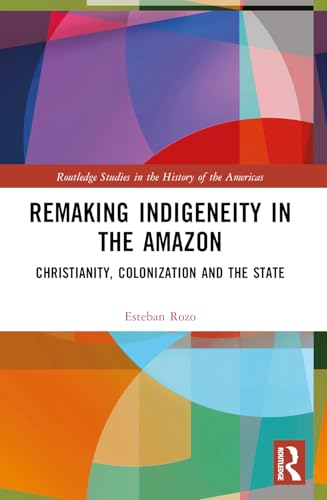
Remaking Indigeneity in the Amazon
Esteban Rozo
Questions & Answers
The intertwining of Christianity, colonization, and state-making significantly influenced the construction of indigeneity in the Colombian Amazon throughout the 20th century. Catholic missionaries, tasked with the tutelage of indigenous groups, played a crucial role in shaping national identity and governance. Their efforts led to the "nationalization" of frontier regions, where indigenous populations were considered subjects of the state. Evangelical missionaries, arriving in the 1940s, introduced new forms of indigeneity, challenging the state's and Catholic missionaries' notions of civilization and development. Indigenous groups selectively adopted these new ideas to assert their own identities and interests. The state, adapting development policies to indigenous realities, also utilized evangelical Christianity to navigate colonization and modernity. This complex interplay resulted in a dynamic construction of indigeneity, shaped by indigenous agency, religious conversion, and state policies.
Catholic and evangelical missionaries played significant roles in shaping indigenous identities and interactions with the state in the Colombian Amazon. Catholic missionaries, particularly the Montfort order, were instrumental in the state's frontier-making process, establishing reducciones (mission towns) to "civilize" and "nationalize" indigenous groups. They associated control over indigenous populations with state sovereignty and used education to foster a sense of Colombian patriotism.
Evangelical missionaries, like those from New Tribes Mission, challenged Catholic authority and introduced new ideas of indigeneity. They lived among indigenous communities, translating the Bible into local languages and fostering indigenous church leadership. This led to tensions with the state and Catholic missionaries, as evangelical conversion was seen as a threat to state authority and colonization efforts.
Both types of missionaries facilitated the process of indigenous conversion to Christianity, which became a means for indigenous communities to assert their rights and challenge state-led development projects. The state's relationship with indigenous groups evolved, with Catholic missionaries being replaced by an indigenist bureaucracy that aimed to integrate indigenous communities into the nation without assimilation. Overall, missionaries' influence shaped indigenous identities and their interactions with the state, often in complex and conflicting ways.
In the Colombian Amazon, indigenous groups selectively appropriated and adapted Christianity to navigate colonization, modernity, and state formation. They used conversion as a means to assert their identities and interests. Evangelical Christianity, in particular, allowed indigenous groups to redefine themselves and challenge dominant narratives of civilization and development. Indigenous evangelicals developed a critique of materiality, emphasizing values and attitudes over possessions, while still utilizing modern technologies. They also engaged with the state, demanding rights and development, demonstrating their ability to navigate complex relationships with different actors. This adaptation of Christianity into a form of "Christian indigeneity" allowed indigenous groups to maintain their cultural identity while adapting to the changing landscape of the Amazon.
The state's development policies and the rise of informal mining activities in the Colombian Amazon had significant implications for indigenous communities. Developmental indigenism aimed to integrate indigenous groups into the nation without cultural assimilation, but often resulted in cultural erosion and dependency on state programs. Informal mining, while providing income, led to environmental degradation and conflicts with the state. Indigenous communities became involved in mining despite risks, as it challenged traditional livelihoods and offered economic opportunities. The state's inconsistent policies and the informal nature of mining created complex relationships between indigenous groups, miners, and the state, often leading to conflict and uncertainty.
The concepts of 'developmental indigenism' and 'traditional miner' reflect the evolving relationships between the state, indigenous communities, and economic interests in the Colombian Amazon through a complex interplay of adaptation, negotiation, and power dynamics.
'Developmental indigenism' emerged in the 1950s, shifting the state's approach from assimilation to development and integration of indigenous groups. It aimed to protect indigenous culture while developing communities, creating a new relationship based on rights and duties. This policy allowed indigenous communities to engage with the state, demanding development and material improvement, while the state adapted policies to local realities.
The 'traditional miner' concept, particularly in the context of gold mining, illustrates how indigenous and non-indigenous miners strategically used legal categories and indigenous autonomy to legitimize informal mining. This challenged state definitions of legality and highlighted the miners' connection to the land and their traditional practices. The state's response, criminalizing informal mining, led to conflicts and demonstrated the tension between economic interests and indigenous rights. Overall, these concepts show a dynamic relationship where the state, indigenous communities, and economic interests continuously negotiate and adapt to each other's demands and constraints.